

In a city where apartments are measured in square inches rather than feet and “personal space” remains a theoretical concept mostly experienced in dreams, New York’s board game scene has flourished with characteristic metropolitan ingenuity. When winter winds whip between skyscrapers with vindictive glee or summer humidity transforms subway platforms into impromptu saunas, gathering in climate-controlled sanctuaries to push wooden pieces across colorful boards becomes less hobby and more essential mental health preservation. Let’s explore the cardboard havens scattered across the five boroughs, where New York’s legendary impatience paradoxically dissolves over lengthy German-designed strategy games.
Spreading strategic enlightenment across Manhattan like a benevolent gaming empire, Hex & Company has established locations on both the Upper East and West Sides, bringing board gaming to neighborhoods previously forced to entertain themselves with merely limitless world-class museums and cultural institutions.
Their dual-location strategy acknowledges the city’s fundamental truth that even the most enticing destination can’t overcome the psychological barrier of “it’s on the other side of the park.” By bringing gaming to both East and West Siders, they’ve created neighborhood institutions that feel simultaneously local and connected to something larger.
Their spacious (by Manhattan standards, which admittedly isn’t saying much) layouts transform what could be merely transactional retail into genuine community hubs. The casual observer might initially mistake the focused silence of intense gameplay for typical New York standoffishness, but closer observation reveals the distinctive pattern of community formation: strangers becoming acquaintances over borrowed dice, acquaintances becoming friends over shared victories, and friends becoming chosen family through the crucible of cooperative campaign games.
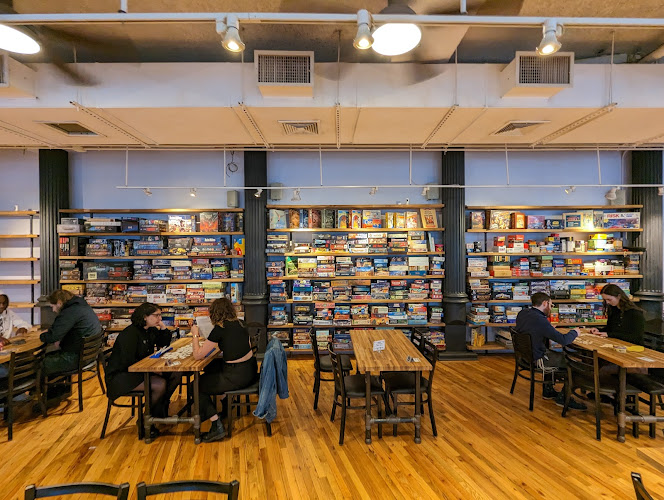
Bringing strategic entertainment to Brooklyn with characteristic borough thoughtfulness, Next Move Cafe creates an experience where gaming serves as vehicle for community formation rather than mere entertainment consumption.
Their successful integration of refreshments, gameplay, and structured events creates experiences that transcend simple recreation to become meaningful social infrastructure—particularly valuable in a city where isolation can paradoxically thrive amid density.
Their commitment to serving diverse gaming communities through specific programming demonstrates understanding that “gaming” encompasses countless distinct sub-communities with different needs, interests, and experience levels. This segmented approach ensures that whether you’re a trading card competitor, role-playing enthusiast, or board game explorer, you’ll find not just activities but people who share your specific enthusiasm.
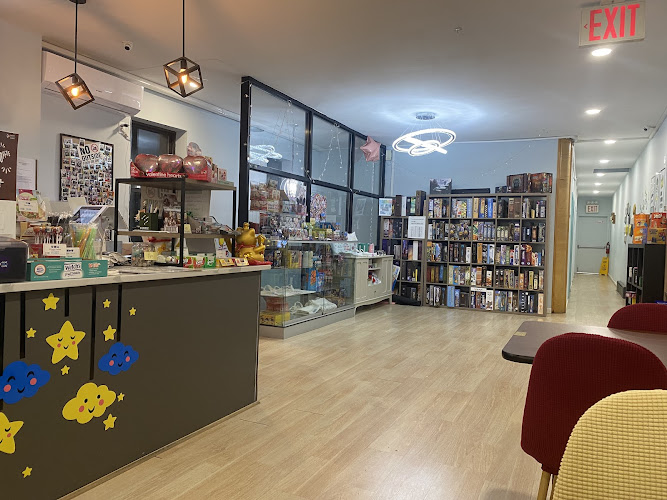
Nestled in Greenwich Village like a perfectly placed settlement in Catan, The Uncommons holds the distinction of being Manhattan’s first board game café, pioneering a concept that New Yorkers didn’t know they desperately needed until it appeared.
The Uncommons has mastered the delicate Manhattan alchemy of creating space where none should logically exist. Their Washington Square adjacent location provides a sanctuary where the city’s characteristic rush mysteriously pauses, creating temporal anomalies where “just one quick game” somehow consumes entire afternoons. The café’s proximity to NYU ensures a steady influx of both enthusiastic newcomers and battle-hardened strategy veterans, creating a uniquely New York melting pot of gaming experiences.
What distinguishes The Uncommons isn’t just their first-mover advantage but their continued excellence in a market that’s grown increasingly competitive. They’ve maintained their position as an essential Greenwich Village landmark through dedication to creating experiences rather than just selling coffee alongside rentable entertainment—embodying the New York principle that being first only matters if you also remain best.
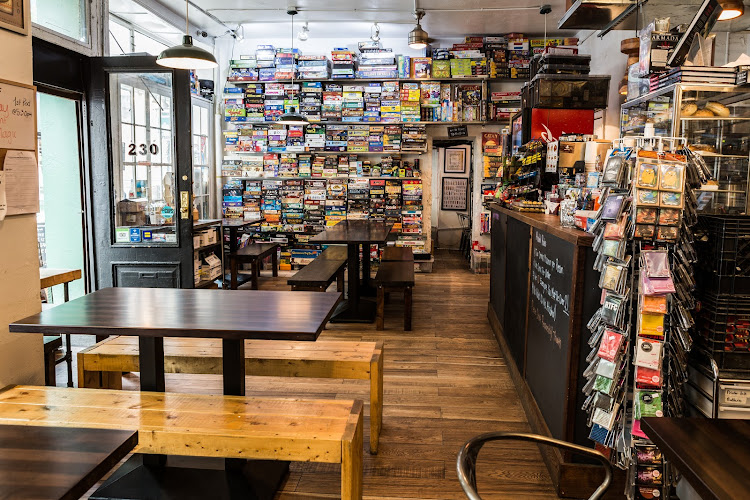
With a name efficiently communicating their core value proposition, Sip & Play distills the board game café concept to its essential elements: quality beverages consumed alongside quality games, without unnecessary complications or distractions.
Their streamlined concept acknowledges the city’s fundamental truth that time remains the scarcest resource, creating experiences that deliver maximum enjoyment without unnecessary complications or commitments.
Their carefully balanced environment provides enough structure to facilitate gaming without imposing rigid expectations or schedules. This flexibility perfectly suits New York’s unpredictable rhythms—creating spaces where planned game nights can unfold according to schedule while simultaneously accommodating impromptu visits when original plans inevitably collapse due to subway delays, weather emergencies, or the thousand other variables that regularly disrupt city life.
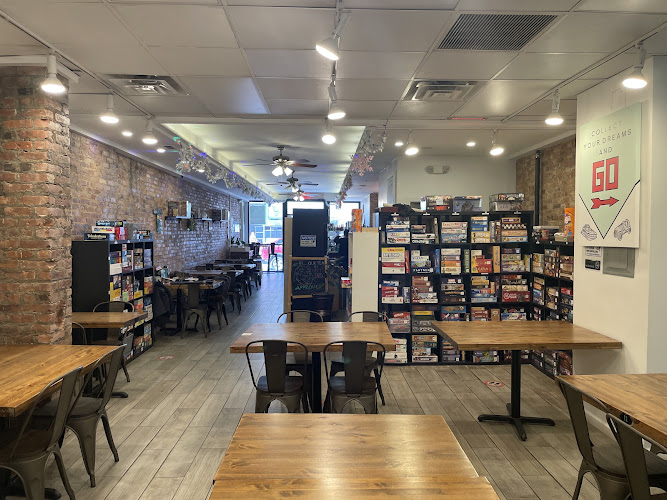
Named with a knowing wink to tabletop role-playing enthusiasts, Chaotic Good has established itself on the Upper West Side as a sanctuary where gaming transcends mere entertainment to become legitimate lifestyle.
Chaotic Good perfectly captures the Upper West Side’s distinctive character: intellectually serious without sacrificing comfort. Their thoughtful integration of quality refreshments with gaming experiences acknowledges that strategic thinking requires proper fueling—and that proper fueling in Manhattan means coffee that would be considered religious experience in most other cities.
Their extensive library of over 400 games spans from accessible party games to strategic experiences complex enough to require their own textbooks, creating a space where gaming newbies can discover entry points while veterans find challenges worthy of their expertise. This careful balance of accessibility and depth mirrors New York itself: initially overwhelming but ultimately rewarding to those willing to invest the time to discover its treasures.
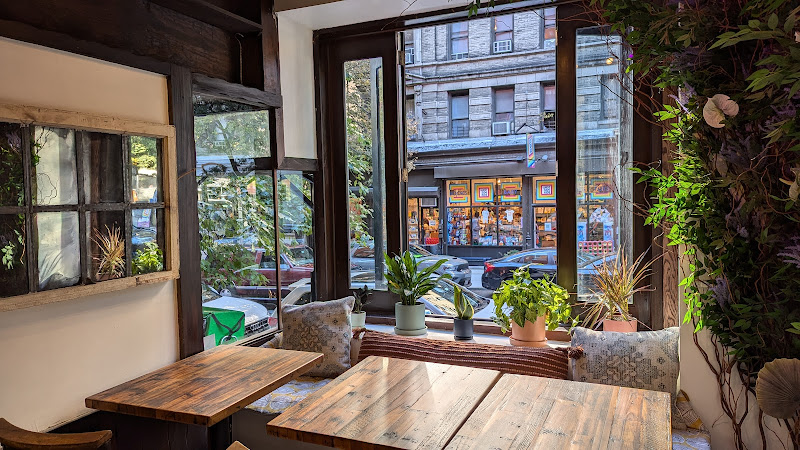
With a name capturing both gaming table shape and the intensity sometimes emerging during competitive play, Squarrel Cafe has carved out its distinctive niche in New York’s gaming ecosystem through careful attention to atmospheric details often overlooked by competitors.
Rather than attempting to be everything to everyone, they’ve created an experience specifically optimized for gaming comfort—addressing practical concerns like table stability, chair comfort, and proper illumination that can make the difference between immersive gaming experience and physical discomfort disguised as entertainment.
Their approach acknowledges that while games themselves provide the primary draw, surrounding environmental factors significantly impact overall experience quality. This attention to seemingly minor details creates an environment where sessions routinely extend hours beyond initially planned durations—not because patrons lose track of time (though they often do) but because continuing feels more appealing than leaving.
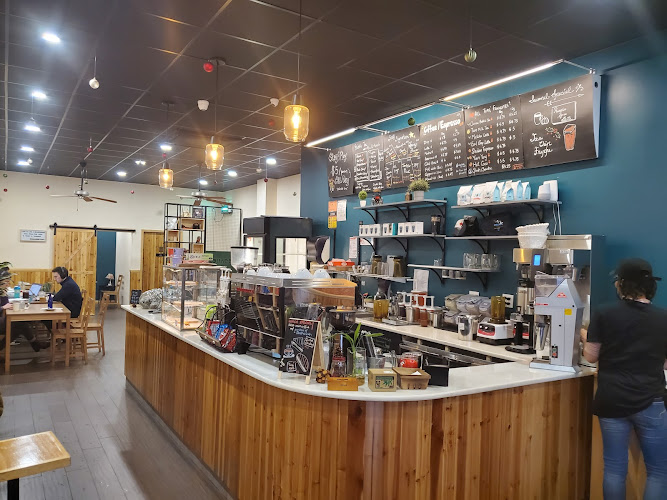
Breaking from traditional game café formulas with characteristic downtown innovation, Recreation in lower Manhattan expands the definition of “gaming” to include everything from ping pong to arcade classics, creating a multi-vector entertainment experience unified by playful competition.
Their successful fusion of analog and digital gaming with craft beverages creates experiences that transcend conventional category definitions—much like the neighborhood itself, which has continuously reinvented itself while maintaining distinctive character.
Their multi-activity approach acknowledges the city’s fundamental social truth that groups often contain individuals with divergent interests and energy levels. By providing varied engagement options within a unified space, they’ve created an environment where the compromise of “where should we go tonight?” can genuinely satisfy everyone rather than simply disappointing different people in different ways.
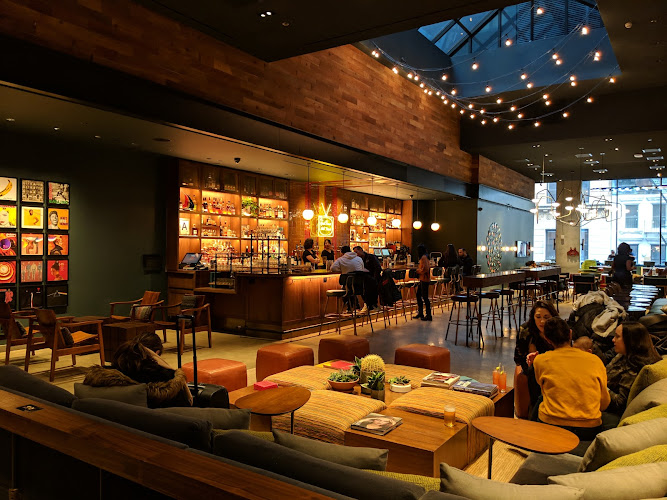
Note: This is more of a generalized gaming community than a board game cafe. It has a wide range of arcade, bar and other game types.
Established with community-building as its explicit mission rather than merely implied benefit, Coexist GameHouse transforms gaming from solitary hobby into social infrastructure through deliberate programming and thoughtful space design.
Coexist GameHouse embodies the New York community-building approach: intentional rather than incidental. Rather than assuming community will naturally emerge from proximity (the “if you build it, they will come” philosophy that dooms many gaming venues), they actively facilitate connections through structured events, introductions, and programming specifically designed to integrate newcomers.
Their success in creating a diverse gaming community reflects New York’s distinctive social ecosystem where connections form around shared interests rather than demographic similarities. By emphasizing inclusivity as core value rather than marketing buzzword, they’ve created a space where the traditional barriers to gaming participation—expertise intimidation, social anxiety, group formation challenges—are actively addressed rather than merely acknowledged.
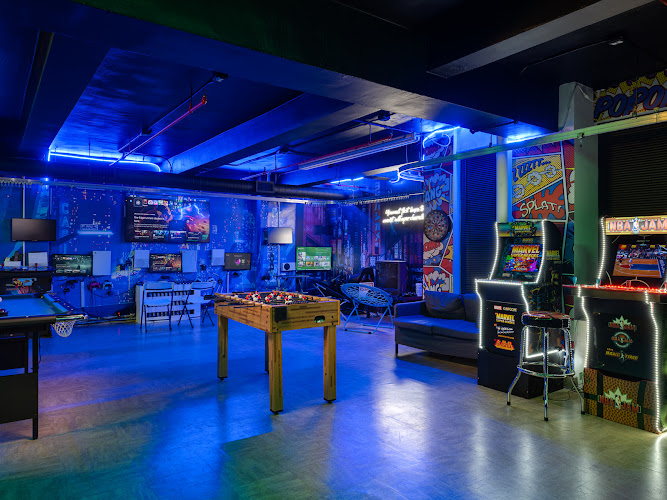
With longevity that qualifies as practically ancient by Manhattan retail standards, The Compleat Strategist near the Empire State Building has watched the city transform around it while maintaining its position as essential institution through sheer force of inventory depth and specialist knowledge.
While not offering a full café experience, their Midtown Manhattan location deserves inclusion for its foundational role in New York’s gaming ecosystem. Their comprehensive inventory transforms what could be simple transactional retail into essential infrastructure for the city’s gaming community.
Their survival through decades of Manhattan retail evolution—outlasting countless businesses with trendier concepts, flashier locations, or deeper financial backing—speaks to the enduring value of genuine expertise in a market increasingly dominated by algorithm-driven recommendations and experience-focused retail. In a city constantly reimagining itself, The Compleat Strategist represents rare continuity—a place where today’s enthusiasts browse the same shelves that educated previous generations.
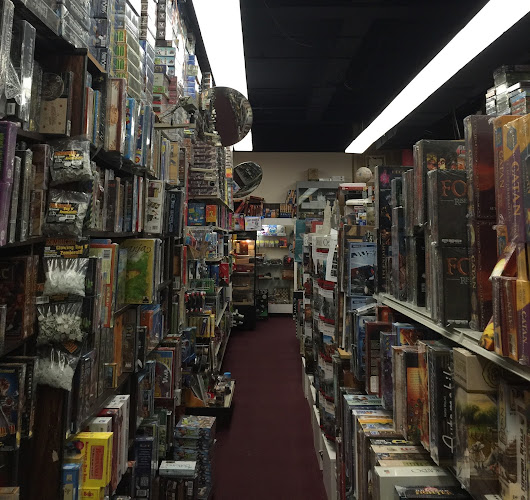
New York’s board game scene reflects the city itself: surprisingly diverse, relentlessly innovative, and perpetually explaining to outsiders that there’s more to it than initially assumed. These gaming venues have created micro-communities in a metropolitan area where “Which neighborhood do you live in?” functions as primary social sorting mechanism and cross-borough friendships are maintained with the dedication normally reserved for long-distance relationships.
What distinguishes New York’s gaming landscape is its accessibility—both literally (most venues are reachable by public transportation) and figuratively (the communities welcome newcomers with authentic enthusiasm rather than suspicious gatekeeping). Whether you’re a serious gamer with a collection that requires its own storage unit or someone who still thinks Monopoly represents the height of board game sophistication, New York offers spaces where you can find your people.
The varied landscape of dedicated venues has created a tight-knit community where faces become familiar across locations, and recommendations travel faster than news of celebrity sightings in Williamsburg. Regular patrons develop relationships that transcend the gaming table, forming bonds over shared experiences like debating optimal worker placement strategies, collectively suffering through subway delays, and united in their passionate opinions about which venue truly offers the best gaming tables in the city.
As New York continues its perpetual evolution, the board game scene serves as microcosm of what makes the city work: innovative excellence, genuine community, and the stubborn belief that meaningful connections still happen best in person, over shared tables and borrowed dice.
So whether you’re a lifelong New Yorker who remembers when Times Square was dangerous rather than Disney, a recent transplant still adjusting to the concept of paying premium prices for minimal square footage, or just passing through on your way to somewhere supposedly more relaxing, the board game scene offers something uniquely New York—a place where community forms around shared experiences, where strangers become friends over tactical discussions, and where the only thing more welcome than a new player is a new player who brings bakery treats from that place everyone’s been talking about.
After all, in true New York fashion, these venues exist as islands of focused calm in a city defined by perpetual motion and noise, proving that sometimes the most meaningful connections happen offline, one dice roll at a time, in a city that contains multitudes with remarkable density.
